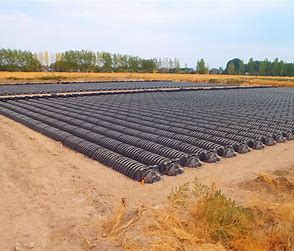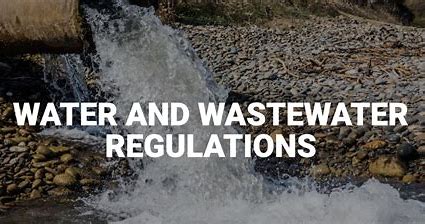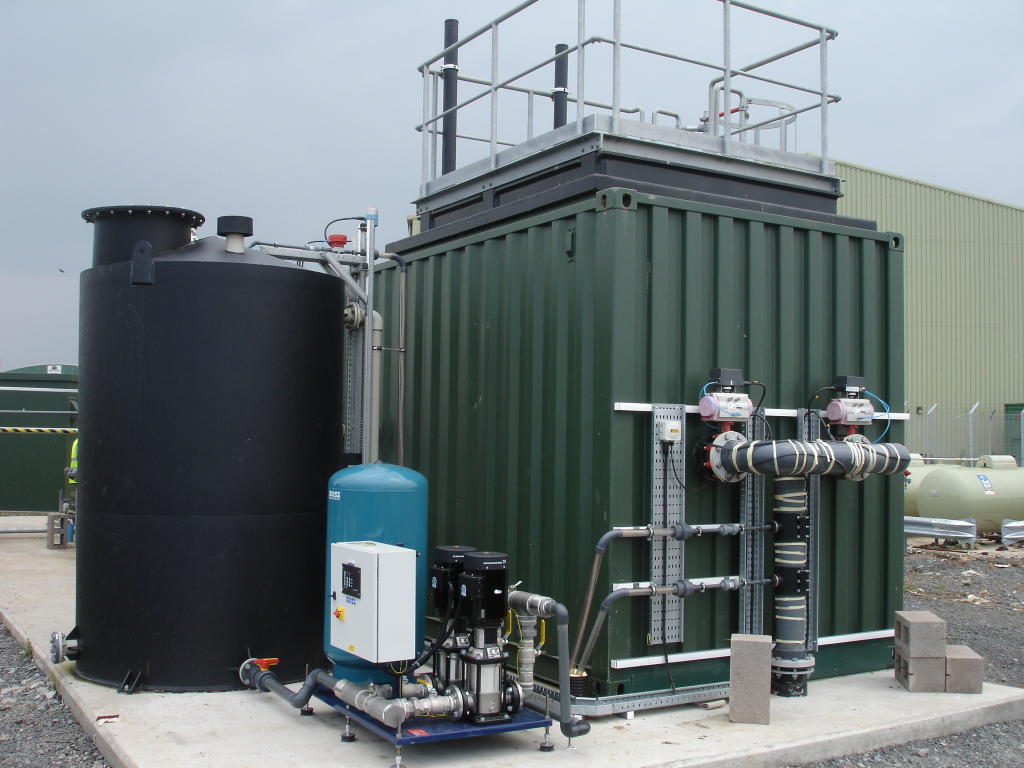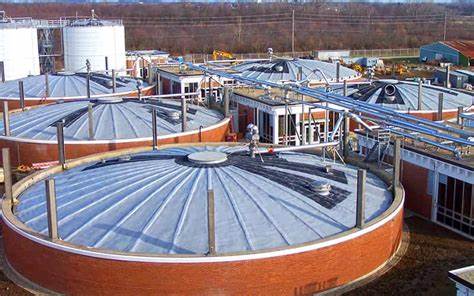Zero Liquid Discharge (ZLD) in Wastewater Treatment: A Sustainable Solution for Water Scarcity and Pollution Introduction Zero Liquid Discharge (ZLD) is a concept in wastewater treatment that aims to completely eliminate the discharge of liquid effluents. This approach is crucial in addressing global issues such as water scarcity and pollution. ZLD systems treat and recover all wastewater streams, ensuring that no liquid waste is released into the environment. This conserves freshwater resources and prevents water pollution, making ZLD a sustainable and efficient solution for wastewater management. Historical Background Wastewater treatment has evolved over time, starting with basic methods like settling…
Author: jenks2026
Introduction The importance of energy-efficient wastewater treatment systems cannot be overstated in today’s world. As the global population continues to grow, so does the need for effective wastewater treatment solutions that minimize energy consumption and reduce environmental impact. This article aims to provide an in-depth exploration of energy-efficient wastewater treatment systems, highlighting their relevance and importance in the context of sustainability. Additionally, it will present a brief overview of the article’s structure and main points to guide readers through this comprehensive discussion. Historical Background To understand the significance of energy-efficient wastewater treatment systems, it is essential to examine their evolution…
The Resourceful Potential of Biosolids: A Sustainable Solution for Wastewater Management Introduction Biosolids, derived from wastewater treatment processes, have emerged as a crucial resource with immense potential. This article delves into the importance of utilizing biosolids as a sustainable solution for wastewater management, emphasizing their relevance in terms of sustainability and environmental impact. Historical Background Wastewater disposal was initially seen as a problem, but with growing environmental concerns, biosolids were recognized as a valuable resource. This marked a turning point in wastewater management practices. Regulations and guidelines were introduced to ensure proper management of biosolids, promoting responsible usage. Key Concepts…
Innovations in Sustainable Wastewater Treatment Introduction The topic of sustainable wastewater treatment addresses the need for environmentally friendly and efficient management of wastewater. As population growth and urbanization continue to accelerate, traditional methods have proven to be inadequate for sustainable development. This article explores the relevance and importance of sustainable wastewater treatment in terms of environmental sustainability and public health. Additionally, it discusses the potential benefits that innovative wastewater treatment technologies can bring to society. Historical Background Wastewater treatment has evolved significantly over time. Initially, primitive methods such as sedimentation and land treatment were used to remove solid pollutants from…
Emerging Contaminants in Wastewater: A Comprehensive Exploration Introduction Emerging contaminants in wastewater pose potential risks to human health and the environment. This article aims to provide a comprehensive understanding of these contaminants, their sources, fate, and implications. By delving into the historical background, key concepts, and current trends, this article offers valuable insights into the importance of studying emerging contaminants in wastewater. Historical Background Advancements in wastewater treatment processes have played a pivotal role in uncovering the presence and impact of emerging contaminants. Over time, researchers have developed analytical techniques to detect and identify these substances. The discovery of pharmaceuticals…
Dealing with Aging Infrastructure in Wastewater Treatment Introduction: The topic of aging infrastructure in wastewater treatment has gained significant attention in recent years. As cities and municipalities struggle to keep up with the growing demands of their wastewater treatment systems, the consequences of neglecting aging infrastructure become increasingly dire. In this article, we will explore the historical background of wastewater treatment and infrastructure development, define key concepts, and discuss the impact of aging infrastructure on wastewater treatment. Furthermore, we will delve into strategies for addressing these issues, the cost implications, and provide real-world case studies. Finally, we will examine current…
Climate Change and Its Impact on Wastewater Management Introduction Climate change poses significant challenges to various sectors, including wastewater management. This article explores the impact of climate change on wastewater management, providing historical background, key concepts and definitions, main discussion points, case studies, current trends and developments, challenges and controversies, future outlook, and a summary of the main points discussed. Understanding the implications of climate change on wastewater management is crucial for developing effective strategies to mitigate its effects. Historical Background Wastewater management practices have evolved over time due to advancements in technology and growing awareness of environmental impacts. However,…
Introduction Artificial Intelligence (AI) and the Internet of Things (IoT) are emerging technologies that have the potential to revolutionize various industries, including wastewater treatment. This article explores the importance and relevance of AI and IoT in wastewater treatment processes, discussing the potential benefits and advancements they can bring. Historical Background The application of AI and IoT in wastewater treatment is a recent development that has achieved significant advancements and milestones. These advancements include the use of AI algorithms for data analysis and predictive modeling, as well as the integration of IoT devices for real-time monitoring and control of wastewater treatment…
Decentralized Wastewater Treatment Systems: Advantages, Components, and Future Outlook Introduction Decentralized wastewater treatment systems (DWWTS) have gained significant attention in recent years due to their environmental impact, cost-effectiveness, and sustainability. This article explores the origins of wastewater treatment systems, the emergence of decentralized systems, and the importance and relevance of this topic. With a focus on SEO optimization, this article delves into the advantages, components, case studies, current trends, challenges, and future outlooks associated with decentralized wastewater treatment systems. Historical Background Wastewater treatment systems have a long history, with origins dating back to ancient civilizations. However, it was not until…
The Role of Policy and Regulations in Wastewater Management Introduction The topic of the Role of Policy and Regulations in Wastewater Management is crucial when considering environmental sustainability and public health. This article aims to provide a comprehensive understanding of the importance of policy and regulations in this field. It will also outline the main sections that will be discussed. Historical Background Wastewater management has evolved over time, and understanding its history is essential in comprehending the current state of policies and regulations. This section will provide a brief history of wastewater management, highlighting significant events and milestones that have…
Introduction The topic of wastewater treatment in sustainable development is introduced, emphasizing its relevance and importance. The article aims to explore the main points and key concepts surrounding wastewater treatment and sustainable development. Historical Background A brief history of wastewater treatment and its importance in sustainable development is provided. The evolution of wastewater treatment practices over time is discussed, highlighting significant milestones and developments that have resulted in increased efficiency and effectiveness. Key Concepts and Definitions The definitions of wastewater treatment and sustainable development are provided, emphasizing their interdependency. Other key terms and concepts related to wastewater treatment and sustainable…
Introduction Advanced wastewater treatment technologies have become essential in addressing the growing concerns of water pollution and scarcity. As industries and populations continue to expand, conventional treatment methods are often inadequate in removing harmful pollutants from wastewater. This article explores the historical background, key concepts, and main discussion points surrounding advanced wastewater treatment technologies. By delving into real-world examples, current trends, challenges, and future implications, it becomes evident that these technologies play a pivotal role in achieving sustainable water management. Historical Background Wastewater treatment technologies have evolved significantly over time. Initially, basic treatment methods focused on removing solid waste through…
Introduction Membrane Bioreactors (MBRs) have become an integral component of wastewater treatment systems due to their efficiency and effectiveness. This article provides an overview of MBRs, including their historical background, key concepts, main discussion points, case studies, current trends, challenges, future outlook, and conclusion. Historical Background Wastewater treatment techniques have evolved significantly over time. Initially, conventional methods such as sedimentation and biological treatment were employed. However, the introduction of membrane technology revolutionized wastewater treatment by offering enhanced filtration capabilities. This led to the development and adoption of Membrane Bioreactors (MBRs) in wastewater treatment, combining the biological treatment process with membrane…
Introduction Anaerobic digestion for wastewater treatment is a process that utilizes microorganisms to break down organic matter in the absence of oxygen. This natural process not only effectively treats wastewater but also produces renewable energy in the form of biogas. Wastewater treatment is of utmost importance for public health and environmental preservation. Historical Background Anaerobic digestion has been used since ancient times to treat organic waste. Over time, it has evolved to meet the needs of modern society, particularly in wastewater treatment. Today, anaerobic digestion is considered a sustainable and efficient method for managing wastewater, offering numerous advantages over traditional…
Introduction Ultraviolet (UV) disinfection is a crucial process in wastewater treatment that aims to remove harmful pathogens and contaminants. This article explores the relevance and importance of UV disinfection in wastewater treatment, emphasizing its efficiency and effectiveness as a sustainable solution. By understanding the mechanisms and applications of UV disinfection, readers can grasp the significance of this technology in creating a cleaner and safer environment. Historical Background Over time, wastewater treatment has evolved to protect public health and the environment. Disinfection methods have undergone various transformations, transitioning from chemical-based approaches to physical processes. The emergence of UV disinfection has revolutionized…
Introduction In this article, we will explore the relevance and importance of ozone treatment in wastewater management. With the increasing global population and industrial activities, effective wastewater treatment is crucial for maintaining a clean and sustainable environment. Ozone treatment has emerged as a promising method in this field, offering numerous advantages over traditional treatment methods. Let’s delve into the historical background and key concepts of ozone treatment to understand its significance better. Historical Background Wastewater treatment has a long history dating back to ancient civilizations. However, it wasn’t until the 19th century that significant advancements were made in this field.…
Introduction Electrocoagulation is a promising technology in wastewater treatment. This article provides an overview of electrocoagulation and its relevance in addressing wastewater treatment challenges, with a focus on improving environmental sustainability. Historical Background Electrocoagulation in wastewater treatment dates back to the early 20th century. Significant advancements have been made in this field, recognizing electrocoagulation as an effective treatment method. Key Concepts and Definitions Electrocoagulation involves using an electrical current to generate coagulants that remove contaminants from wastewater. Coagulants, electrodes, and electrochemical reactions are essential in the process. Main Discussion Points Mechanism of Electrocoagulation in Wastewater Treatment Electrocoagulation involves a series…
Environmental Benefits of Wastewater Treatment Introduction Wastewater treatment is a crucial process that plays a vital role in safeguarding the environment and preserving our natural resources. By effectively removing contaminants from wastewater, this process ensures that water bodies remain clean and healthy, leading to a multitude of environmental benefits. This comprehensive article explores the historical background, key concepts, and main discussion points related to wastewater treatment, as well as provides case studies, current trends, challenges, and future outlooks. Understanding the significance of wastewater treatment is essential for promoting sustainable practices and protecting our planet. Historical Background Throughout history, wastewater treatment…
Introduction Wastewater treatment plays a crucial role in ensuring public health and the protection of the environment. In this comprehensive article, we will delve into the historical background, key concepts and definitions, main discussion points, case studies, current trends, challenges, future outlook, and the importance of wastewater treatment for public health and well-being. Historical Background Over time, the evolution of wastewater treatment practices has been instrumental in mitigating the adverse impacts of inadequate or improper wastewater treatment. Initially, the lack of proper treatment led to contamination of water sources, resulting in the spread of diseases and environmental degradation. However, advancements…
Economic Advantages of Effective Wastewater Treatment Introduction The topic of wastewater treatment is of utmost importance in today’s world as the global population continues to grow and water scarcity becomes a pressing issue. Finding cost-effective and sustainable ways to manage wastewater is crucial. This article aims to explore the economic advantages of wastewater treatment and the reasons why further exploration of this topic is essential. Historical Background Wastewater treatment has evolved over centuries. In ancient civilizations, simple methods like land filtration or discharge into nearby water bodies were used. However, as societies grew larger and industrialization took place, the need…





















